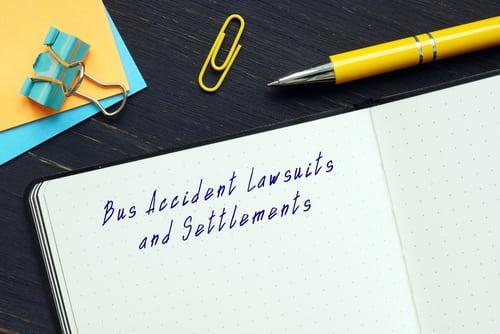It’s scary to get a certified letter from a law firm or collections company. This is especially true when the letter says you’re now “on notice of intent to file a medical lien.” Companies like Aspirion Health Resources, LLC, Enablecomp, Revecore, and Elevate PFS send these letters to patients who have been treated at hospitals. This is one of many examples; numerous other companies and hospitals are utilizing Georgia’s Hospital Lien Statute.
Our Alpharetta personal injury lawyers at Horst Shewmaker know how to handle these big companies and their lawyers.
Who Can File a Medical Lien?
Under Georgia Law, according to O.C.G.A. § 44-14-470(b), chiropractic practices, hospitals, nursing homes, physician practices, and traumatic burn care practices may assert a lien for the reasonable charges for treatment of an accident victim. A medical lien applies to more than treatment at hospitals but, for whatever reason, most people simply refer to these liens as “hospital liens.” Note that the statute does not offer protection to emergency medical response (EMS).
In 2023, there was a dramatic change to the hospital lien law. O.C.G.A. § 44-14-471(c) provides “[n]o filing of a claim or lien under this part shall be enforceable unless the person, firm, hospital authority, or corporation operating a hospital, nursing home, physician practice, chiropractic practice, or traumatic burn care medical practice filing such claim or lien first submitted a claim to each health insurer of the injured person, if such injured person has health insurance coverage, and had such claim rejected.”
So what exactly does this change mean for the patient? It means that for patients who have health insurance coverage, the medical care provider is required to file under the patient’s health insurance plan before seeking to enforce a valid lien against the patient’s personal injury settlement.
This change is monumental and could impact, to the tune of thousands (if not tens of thousands) of dollars, what the client nets from a personal injury settlement. Accordingly, a patient would be well advised to require the provider to comply with this improvement in Georgia law by insisting his/her health insurance is billed for the medical services rendered.
What Is a Medical Lien?
A medical lien allows healthcare providers to recover the costs of medical treatment directly from the financial compensation they receive from a third party responsible for their accident injuries.
When you are injured and receive medical assistance, hospitals, and other medical providers have the right to place an enforceable lien on your potential personal injury settlement to ensure they are paid for their services. This type of medical lien ensures that hospitals and other medical facilities are paid for the care they provide, even when the patient may not have immediate means to pay the bill.
It is important to note that a hospital lien is not a lien against your home, your bank account(s), or your assets. A medical lien only attaches to the underlying cause of action. This means the lien is only against your claim arising out of a car accident, trucking accident, slip and fall accident, or dog bite case.
How Do Medical Liens Impact Personal Injury Claims?
Even though a medical lien does not attach to your home or personal property, it still impacts your financial recovery from a personal injury claim.
Impact on Net Recovery
A hospital lien can reduce the amount of money you ultimately receive from your personal injury settlement. The lien ensures that the medical provider is paid for their services before you receive any compensation.
If your settlement amount is substantial, a portion of it will be diverted to cover the medical expenses listed in the lien, thereby reducing your net recovery. For instance, if you settle a claim for $50,000 and there is a medical lien for $10,000, the lien must be paid from the settlement amount, leaving you with the remaining $40,000.
Notification to Insurance Companies
When a hospital files a lien, they notify not only you but also the insurance companies that might be responsible for covering your damages. This includes your own auto insurer if you’re filing a personal injury claim under your policy as well as the at-fault party’s insurance carrier.
These insurance companies have a legal obligation to satisfy hospital liens before disbursing funds to you. Consequently, a medical lien can complicate the insurance settlement process and delay your ability to access funds.
Health Insurance Considerations
If you have health insurance, the hospital must first attempt to bill your health insurance company before resorting to a lien. As stated previously, recent changes in Georgia law require healthcare providers to submit claims to the patient’s health insurance and only pursue a medical lien if the claim is rejected.
This means that the hospital should not be bypassing your health insurance carrier in favor of filing a lien directly against your personal injury settlement.
The Importance of Legal Representation
If you receive notice of a medical lien, it can impact your personal injury lawsuit, which is why you should discuss it with an experienced Alpharetta personal injury lawyer. Experienced attorneys can:
Verify Proper Filing
Accident lawyers will ensure that the medical lien was filed correctly according to Georgia law. This includes verifying that all necessary notifications were sent and that the timeline for filing was followed.
Challenge Invalid Medical Liens
An experienced personal injury attorney can identify and challenge medical liens that were not properly filed or are otherwise invalid. This might involve procedural errors or failure to observe legal requirements.
Negotiate Reductions
Injury attorneys can negotiate with healthcare providers to reduce the amount of the lien, especially if the medical expenses are excessive or if there are questions about the reasonableness of the billed amounts. This can increase your net recovery from a fair settlement.
How To Determine If The Hospital Lien Was Filed Correctly
Georgia law outlines specific rules for how to file a lien. These requirements are designed to protect patients and provide clear procedures for healthcare providers. Here’s a detailed look at the key guidelines for medical liens.
Notice Requirements
- The entity filing the lien must send notice to the patient and any other interested parties, such as insurance companies or attorneys representing the patient, at least 15 days before filing the lien. This advance notice gives the patient and other parties sufficient time to understand the lien and respond appropriately.
- The notice must explicitly state that the lien is not against the patient personally or any of their property. This clarification helps prevent misunderstandings about the nature of the lien and reassures patients that their personal assets are not at risk.
- Additionally, the notice must indicate that the lien is not evidence of the patient’s failure to pay a debt. This statement is critical to avoid any misinterpretation that the patient is being pursued for non-payment when, in fact, the lien is a legal mechanism to secure payment from a third-party settlement or judgment.
- The notice must be sent via first-class mail and certified mail or statutory overnight delivery, with a return receipt requested. These delivery methods ensure that there is a verifiable record of the notice being sent and received, which is essential for the lien to be considered valid.
Filing Deadlines
- Hospitals, Nursing Homes, and Traumatic Burn Care Providers: These entities must file the lien statement within 75 days after the patient has been discharged from the facility. This statute of limitations allows sufficient time for the healthcare provider to process the necessary paperwork while still providing a prompt filing to secure their legal claim.
- Physician Practices and Chiropractic Practices: These medical providers have a slightly longer period to file the lien, with the statement required to be filed within 90 days after the patient first sought treatment for the injury. This extended period reflects the ongoing nature of treatment that may occur in these types of practices.
If a healthcare provider fails to follow these statutory requirements, the lien may be deemed invalid. For example, if the notice is not sent within the specified timeframe or if the delivery method does not include a return receipt requested, the medical lien could be challenged and potentially dismissed.
What If My Medical Bills Were Much Higher Than They Should Have Been?
Great question. If the hospital lien follows the statute but the bill is extremely high, there are mechanisms available to address the issue. One effective strategy is to file an “interpleader action.” This legal procedure allows a judge to review the circumstances and decide a fair allocation of settlement money, ensuring that the distribution is equitable and just.
Understanding Interpleader Actions
An interpleader action is a lawsuit filed to determine how funds should be fairly distributed among multiple parties with claims to the same money. In the context of medical liens, this means bringing the matter before a court to address and resolve the disputed amounts claimed by the healthcare provider.
Here are the steps involved:
- Your medical lien attorney will file an interpleader action in the appropriate court. This involves submitting a legal complaint outlining the details of your case, the astronomical bills, and the existence of the hospital lien.
- All interested parties, including the hospital or healthcare provider and any insurance companies involved, must be formally notified of the interpleader action. This ensures that everyone with a potential claim to the settlement proceeds is allowed to present their case.
- The court will review the interpleader action and consider the evidence presented by both sides. This includes medical bills, insurance coverage details, and any other relevant documentation. The judge will assess whether the hospital’s charges are reasonable and if the lien was filed correctly.
- The judge will decide on the fair allocation of the settlement proceeds. If the judge finds that the medical bills are excessively high, they have the authority to reduce the amount claimed by the hospital. This reduction can significantly impact the distribution of the settlement funds.
To illustrate, let’s say you have $100,000 in medical coverage through your health insurance, but your total medical bills amount to $200,000. You receive a final settlement of $500,000 for your car accident. Without any legal intervention, the lien holder would be entitled to $100,000 from your settlement to cover the unpaid portion of the medical bills.
However, by filing an interpleader action, the judge might determine that the fair and reasonable amount for the medical bills should be $100,000 instead of $200,000. In this case, the judge could reduce the lien amount essentially to zero, meaning the lien holder would not receive any portion of your settlement money beyond what was already covered by your health insurance policy.
Filing an interpleader action can be particularly advantageous if the lien holder is unwilling to negotiate in good faith. Some hospital care providers may insist on the full billed amount, regardless of the reasonableness of the charges or the patient’s ability to pay. By taking the matter to court, you can seek an impartial review and potentially reduce the financial burden imposed by the hospital lien.
Speak to an Alpharetta Personal Injury Lawyer Today
If you have suffered a personal injury and received any of these letters, call the lawyers at Horst Shewmaker immediately at (404) 400-1175. Do not fight these massive corporations on your own! They are using their lawyers to pay you as little as possible. Going against seasoned professionals alone could cost you thousands of dollars or more.
Notes: Our team gathers information about accidents in Georgia from various external sources, including news reports, police reports, social media, and eyewitness accounts. The details of this specific incident have not been independently verified by our staff. If you find any inaccuracies in our post, please get in touch with Horst Shewmaker, LLC, and we will promptly correct or remove the content as needed.
Disclaimer: This post is not a business solicitation. It’s important to note that the information provided does not constitute legal advice or establish an attorney-client relationship. Legal outcomes vary depending on specific circumstances. For personalized legal assistance, please contact Horst Shewmaker, LLC directly. The featured image in this post is not from the actual accident scene.
Related: Top Mistakes to Avoid After a Car Accident in Alpharetta







